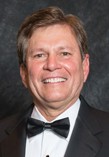© 2015 The Texas Lawbook.
By Mark Curriden
(July 21) – Carlos Hernandez vividly remembers Christmas Eve 1958. He and his family were huddled in their house in Cuba as warplanes flew overhead, firing bullets and missiles.

A few weeks later, Hernandez, who was eight years old at the time, fled Cuba for the United States in fear of their lives. He has never returned.
Despite the renewed diplomatic relationship between President Obama and Cuban President Raul Castro, Hernandez says he has no plans to return and he thinks the U.S.’s softened stance toward Cuba’s leadership is misguided.
“We lost our freedoms. They took all of our property,” says Hernandez, who is now the chief legal officer at Irving-based Fluor Corporation, a $27 billion engineering construction company. “If there was someone else leading Cuba instead of a Castro, I would be more accepting, but it is the same as it was 57 years ago.
“I am not yet prepared to forgive them,” he says. “They should be held accountable for the atrocities they committed.”
On Monday, the Cuban flag was hoisted up the pole outside the Cuban embassy in Washington, D.C. for the first time in 54 years. For some Cuban-Americans, it is an exciting time that opens the door to many business and cultural opportunities.
But for many, including Hernandez, it is nothing short of waiving the white flag. Even many Cuban-Americans in the legal community are divided.
“I’m in the camp of those who have not forgotten what the Castros did to us and others,” says Hernandez, who points out that his daughter visited Cuba several years ago as a law students. “I have very good friends whose families are from Cuba who believe that this will change things in Cuba, but I doubt it will.”
Hernandez believes Cuban-Americans who lived through the revolution and the takeover by the Communist Party are more likely to be opposed to the softened stance toward Cuba, while younger generations tend to favor the Obama Administration’s stance.
“There a curiosity about Cuba. There’s a romantic view by many Americans that we need to go back,” he says. “The reality is, Cuba is nothing more than a Third World country.”
Other Texas business lawyers with a Cuban heritage agree with Hernandez about the split in the Cuban-American legal community.
“Half of my family thinks it is an awful, evil regime that doesn’t allow people to have freedom of speech or freedom of religion,” says Yvette Ostolaza, a partner at Sidley in Dallas. “They don’t want a single dime to go there.”

“My parents, who were middle class people, lost everything overnight,” she says. “My parents left with the clothes they were wearing. They couldn’t take any pictures or anything that reminded them of their lives.”
For her part, Ostolaza, who has never been to Cuba, believes lifting the travel ban presents opportunities.
“I absolutely have a desire to go,” she says. “It is part of my culture and my family’s history. I would like to see this place where my mom and dad were raised. But I also understand those who lost everything and never want to go back.”
© 2015 The Texas Lawbook. Content of The Texas Lawbook is controlled and protected by specific licensing agreements with our subscribers and under federal copyright laws. Any distribution of this content without the consent of The Texas Lawbook is prohibited.
If you see any inaccuracy in any article in The Texas Lawbook, please contact us. Our goal is content that is 100% true and accurate. Thank you.
